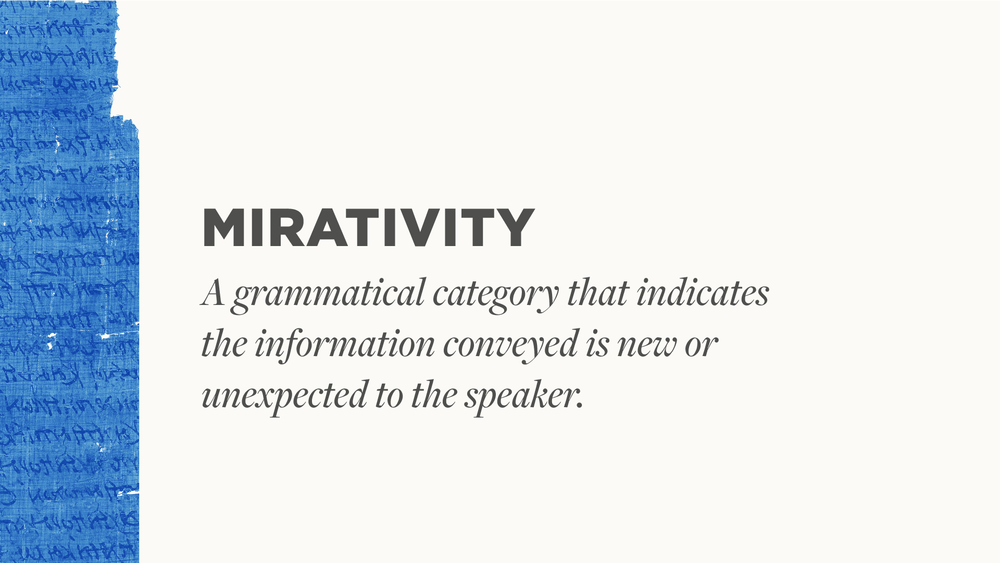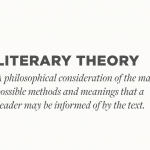
Biblical scholars have been slowly integrating the findings of modern linguistics into their biblical scholarship beginning in the second half of the twentieth century. The following is just one example of how linguistics has advanced our knowledge of biblical Hebrew and provided a plausible explanation for a long running debate.
One of the first vocabulary words students of biblical Hebrew learn is the particle ?????? (hinn?). English translations typically translate ?????? (hinn?) with the interjections ?behold!? or ?lo!? or ?look!? (see, e.g., Gen 1:29; Exod 7:17; 1 Sam 26:24). However, the simplicity of these translations is misleading. In fact, a great deal of uncertainty has long surrounded the meaning and function of the word. The Hebrew and Aramaic Lexicon of the Old Testament (HALOT) explains that ?????? (hinn?) is a ?deictic and interrupting interjection,? but the 10 glosses that follow this explanation highlight the difficulty of explaining the meaning of ?????? (hinn?) in its wide variety of contexts.
However, a recent study by biblical Hebrew linguists incorporates linguistic methodology to offer a clearer perspective on the meaning and function of ?????? (hinn?). In their 2011 study, Cynthia Miller-Naud? and Christo van der Merwe draw on a linguistic idea, mirativity, that appears in many other languages, and they hypothesize that this same idea can explain the function of ?????? (hinn?) in biblical Hebrew.?Mirativity ?refers to the linguistic marking for indicating that the information conveyed is new or unexpected to the speaker.?
Some languages indicate mirativity grammatically, but it can be expressed in other ways, too. For example, English can express surprise lexically (e.g., the English expressions ?I?m really surprised that? or ?Surprisingly?) or even intonationally. Miller-Naud? and van der Merwe illustrate the concept with two examples of English speech patterns that indicate the speaker?s surprise. The first ?involves stressing and lengthening the relevant word in the sentence in order to express surprise as a compliment,? as in ?Your daughter plays really well.? The second speech strategy uses what they call ?question intonation,? as in ?You?re not coming? (meaning ?I?m surprised that you?re not coming, because I thought you were?).
Miller-Naud? and van der Merwe concluded in their exhaustive study of ?????? (hinn?) that the ?most typical and central use? of the biblical Hebrew particle is indicating mirativity, and in cases where it does not, their study explains how the word functions instead. By using a characteristic of other language systems, they have been able to offer a better explanation for a difficult feature of biblical Hebrew than what has been previously available.
* * *
Language is remarkably simple and extraordinarily complex at the same time. Children learn to speak and use their native language simply by hearing it spoken. However, anyone who has tried to master another language, especially as an adult, realizes how complicated languages are. Learning an overwhelming list of vocabulary is the first step, followed by mastery of paradigms and learning to decode the syntax of full sentences and paragraphs. At every turn one encounters idiomatic language, connotations the dictionary does not include, and endless cultural elements that affect meaning. Learning vocabulary is the easy part.
Linguistics is a broad discipline. We are not able?nor is it necessary?to cover all facets of the field in Linguistics & Biblical Exegesis. Neither do we intend to teach readers to do linguistic analysis for themselves, since it is a field that requires expertise in the languages of the Bible as well as in at least one area of formal linguistics. Rather, we will introduce you to the aspects of linguistics that most apply to biblical study so that you can better understand commentaries and other resources that include linguistic discussions. Further, a working knowledge of the field will help you appreciate the complexity of language study and the rigor required of scholars to understand biblical Hebrew and Greek.
In Linguistics & Biblical Exegesis, you will get a basic introduction to the field of linguistics?its history, its key concepts, its major schools of thought, and how its insights can shed light on various problems in biblical Hebrew and Greek. Learn how the study of language can enhance your Bible study.
Deepen your biblical education with the Lexham Methods Series. All four volumes are available now.







